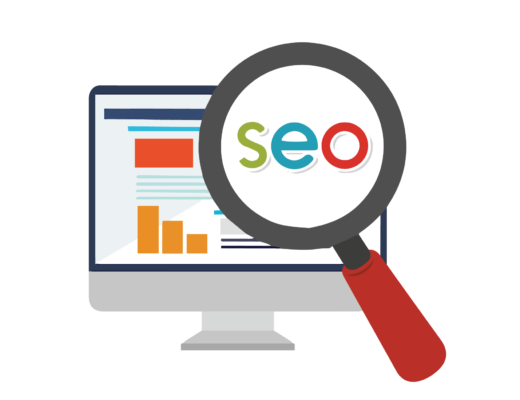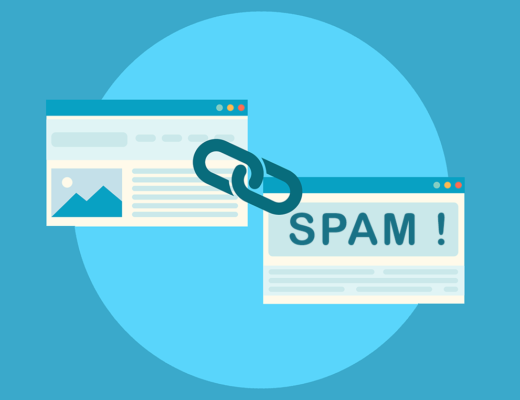SEO (Search Engine Optimization) can be an intimidating topic, but it’s not as complicated as you might think. In fact, with proper knowledge of what to do and what not to do, optimizing your website can be easy, fast, and painless. Here are 10 tips to optimize your website for SEO and grow your website’s traffic at the same time.
1) Find your keywords
To help you get started, consider what customers might search for when looking for your products or services. Once you have a good list of keywords, use an online tool like Google AdWords Keyword Planner to find out how many people are searching for each keyword every month.
This will help you prioritize which keywords to focus on. You can also research the competition and see if there is any opportunity for your website to rank higher in the SERPs.
Make sure all content is optimized: It’s important that you don’t just optimize your home page or homepage for organic traffic but rather all pages as well. You want to make sure that the text on each page is relevant and contains targeted keywords without being repetitive and spammy.
2) Use a hosting company with built-in SEO tools
A good hosting company will have built-in tools to help you optimize your website for SEO. This can save you a lot of time and money in the long run, as you won’t have to hire a separate company or consultant to do the work for you. Here are some tips to look for when choosing a hosting company:
Make sure they offer keyword research and analysis tools. Look for a company that offers on-page optimization features. These features should include automatic title tags, meta descriptions, and XML sitemaps.
Find out if the host has off-site optimization tools like social media plug-ins or plugins to automatically publish content across multiple sites like Facebook, Twitter, LinkedIn, etc.
Check to see if they offer conversion tracking tools like Google Analytics so you can track visitor behavior on your site with precision and accuracy.
3) Create high-quality content, but don’t overdo it.
It is one of the most important tips to optimize your website for SEO. Content is still king when it comes to SEO—after all, that’s what people are coming to your site for in the first place. But while you want to have a lot of content, you don’t want to stuff your site with keyword-stuffed articles that offer little value to users.
Not only will this turn people off, but it could also get you penalized by Google. So focus on creating high-quality, original content that’s informative and engaging.
4) Focus on long tail keywords.
Long tail keywords are more specific and usually longer than the average keyword. They tend to be less competitive, and therefore easier to rank, than more general keywords. Plus, they help you attract a more targeted audience.
To identify long tail keywords, search your target keyword in Google’s search bar, then click on Searches related to under the search results. In addition to being important for SEO purposes, long tail keywords are also important for building content.
5) Check your keywords in Google Analytics.
If you’re not already tracking your website’s traffic and performance with Google Analytics, now’s the time to start. Not only will Analytics give you insights into how people are finding and using your site, but it can also help you identify potential SEO keywords to target.
To see which keywords are driving the most visits to your site, look for keywords in the Acquisition tab of Google Analytics. Then click on search queries in the same Acquisition tab and select the exact match. You’ll then be able to see a list of all the search terms that generated visits to your site, sorted by their popularity (the number of times they were used).
Some people recommend deleting any keyword that doesn’t bring a lot of visitors, but others say you should keep them in place as reminders that they exist. The best thing is probably just to use whatever strategy works best for you!
6) Include your keywords in title tags.
When it comes to on-page optimization, the title tag is one of the most important elements of your website and important tips to optimize your website for SEO. This is because your title tag is what tells search engines what your website is about.
So, if you want your website to rank for certain keywords, you need to make sure those keywords are included in your title tag.
7) Use key phrase rich copy when describing photos.
Whenever you have an opportunity to include text on your website, make sure to stuff it full of relevant keywords.
This includes things like photo captions, blog post titles, and even product descriptions. Not only will this help your site rank higher in search results, but it will also give users a better idea of what they can expect to find on your site.
8) Link to other websites with similar topics
If you want your website to rank higher in search engine results pages, you need to optimize it for SEO. That is what this blog post is all about.
Title tags should be a unique phrase that the reader will type into the search engine query box. It should include keywords related to the content of the page and have an appropriate title length.
Make sure that each page has a unique title tag so that readers know which one they are on when looking at their search history or clicking on a link from another site. A meta description is meant to entice people enough so that they click on the link and read more of the page’s content.
9) Keep things simple by using 1 or 2 fonts and colors.
Keep things simple by using 1 or 2 fonts and colors. Use keyword-rich titles and descriptions to help your website rank higher on search engine results pages (SERPs).
Make sure your website is mobile-friendly, as more and more people are using their smartphones and tablets to go online. Promote your website on social media and drive traffic to it.
Optimize your images and use a good web host to ensure your website loads quickly. Use Google Analytics to track your website’s traffic and see how users are interacting with it.
10) Make sure there are lots of relevant links to your site from other sites.
Links are one of the most important factors for determining the ranking of a website in search engine results pages (SERPs). In general, websites with more links tend to rank higher than those with fewer links.
However, it’s not just the quantity of links that’s important, but also the quality. To improve your website’s SEO, focus on getting high-quality links from reputable websites. This can be done by guest blogging, writing informative articles or whitepapers, and creating helpful infographics.
In addition, make sure your website’s content is keyword-rich and relevant to your target audience. By following these tips, you can help improve your website’s ranking in SERPs and attract more visitors.




